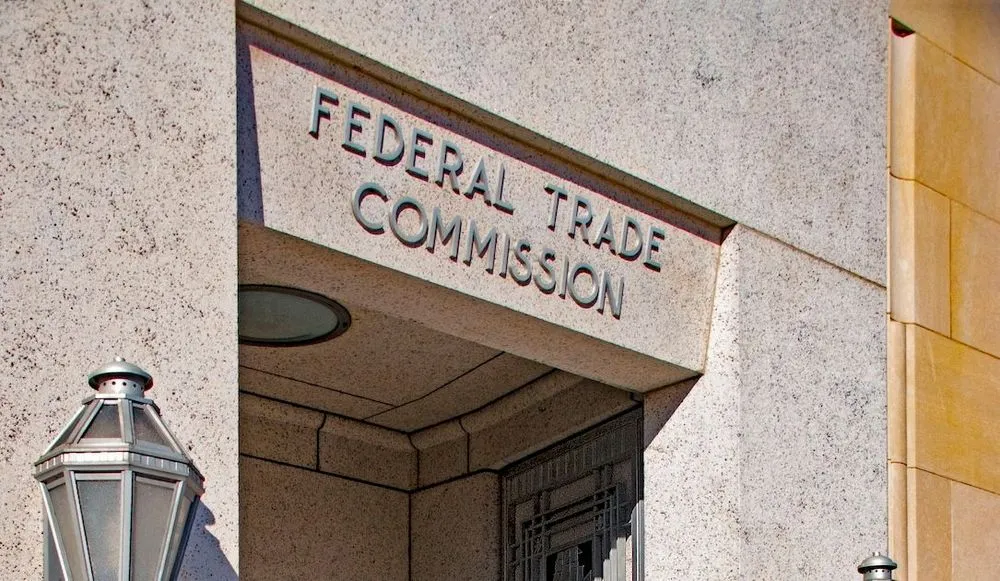FTC launches probe into how companies use data to tailor what each customer pays
The Federal Trade Commission (FTC) announced Tuesday that it has launched an inquiry into how companies surveil consumers to set individualized pricing for the same products and services based on private data from their financial profiles.
The profiles are built from consumer demographics as well as web browsing, credit and geolocation histories, but sometimes harness even real-time data to determine what the agency refers to as “surveillance pricing.”
Eight companies — including Fortune 500 firms Mastercard, JPMorgan Chase and Accenture as well as the consulting firm McKinsey and Co. — have been ordered to explain how they gather and use consumers’ “characteristics and behavior” to set pricing, potentially undermining consumer privacy and marketplace competition, according to an FTC announcement.
The nature of the probe, known as a 6(b) inquiry, sometimes precedes enforcement action, relying on a statute allowing the FTC to conduct broad inquiries into companies’ business models.
The inquiry is designed to enhance the FTC’s understanding of what an agency press release called the “opaque market for third-party products that claim to use advanced algorithms, artificial intelligence and other technologies … to categorize individuals and set a targeted price for a product or service.”
In addition to Mastercard, JPMorgan Chase, Accenture and McKinsey — the latter advises companies worldwide on how to boost profits — the inquiry letters were sent to the under-the-radar software companies PROS, Bloomreach, Revionics and Task Software.
A spokesperson for Mastercard said the company “just received” the FTC inquiry notice and is now reviewing it.
“While we do not have a comment on the order at this time, we will cooperate with the FTC in this process,” the spokesperson said.
Task’s website says it “integrates all sales, payment, inventory and loyalty channels so you have one true ‘single source of truth’ for every customer.”
PROS says it develops “impactful pricing strategies with cutting-edge AI … to deliver instant, personalized prices, tailored for every unique buying and selling interaction and coordinated with all your go-to-market channels,” according to its website.
“Every day we drive more than 400 million prices and 1.7 billion forecasts in more than 30 industries around the globe,” it adds.
Bloomreach markets itself as providing custom data which “uniquely integrates” real-time consumer and product data into AI, “empowering brands to offer personalized marketing, product discovery, content, and conversational shopping in one solution,” its website says.
The fourth software company, Revionics, says it empowers “strategic, profitable pricing decisions for enterprise retailers around the world through our decades of experience and a comprehensive suite of pricing solutions powered by our industry-leading AI.”
A company spokesperson said Revionics “does not develop software that recommends pricing targeted to specific individuals. Revionics does not, in any manner, use individual consumer data.”
“Revionics’ AI price optimization software considers numerous, market-level factors when recommending optimal prices to retailers,” the spokesperson added.
The other six companies did not immediately respond to requests for comment.
The agency’s orders demand information on:
- Specific products and services being used to deliver surveillance pricing that each company has developed or licensed to third parties, how the surveillance pricing is technically used and “current and intended” uses of the technology enabling the practice.
- How information is gathered, including the techniques used to collect data points, how the companies’ platforms enable the practice and whether third parties and other companies collect the data, too.
- Which companies have bought surveillance pricing products and their intentions for how to deploy the technology.
- How the surveillance pricing models affect the costs of products and services and how it impacts consumers by changing how much they are charged.
The FTC framed the inquiry as part of its ongoing focus on the “hidden ecosystem of data brokers, digital platforms, and other intermediaries that specialize in monitoring and selling user data.”
“Firms that harvest Americans’ personal data can put people’s privacy at risk,” FTC Chair Lina Khan said in a statement. “Now firms could be exploiting this vast trove of personal information to charge people higher prices.”
Under Khan the FTC has taken unprecedented steps to target data brokers and other companies exploiting consumer data, with recent enforcement actions particularly focused on how companies gather and sellgeolocation and health data.
Editor's Note: Story updated 4 p.m. Eastern time with statements from Mastercard and Revionics.
Suzanne Smalley
is a reporter covering digital privacy, surveillance technologies and cybersecurity policy for The Record. She was previously a cybersecurity reporter at CyberScoop. Earlier in her career Suzanne covered the Boston Police Department for the Boston Globe and two presidential campaign cycles for Newsweek. She lives in Washington with her husband and three children.



